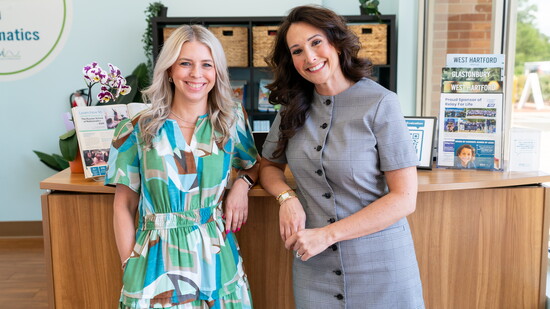One step inside the Russian School of Mathematics (RSM) in Avon, and you’ll quickly realize this is no ordinary math program. In a world full of apps, shortcuts and AI-generated answers, this school takes a different route: Using math to teach students how to think.
“We’re not here to teach procedures or formulas—we’re here to teach children how to reason, strategize and be creative,” says Leah Gallo, Regional Director for Northern Connecticut. She quickly embraced its human-centered, logic-driven approach.
From One Student to a Movement
The school’s origin is as compelling as its curriculum. Thirty years ago, a mother who had fled the Soviet Union was disappointed with the level of math instruction her children were receiving in Massachusetts public schools. Drawing on the rigorous, logic-based Russian math tradition, she began teaching her son at home. Word spread, and soon other students joined.
What began as one kitchen table has grown into a nationwide program with several locations in Connecticut, including Avon and Rocky Hill.
“It works whether your child is aiming for an Ivy League STEM path or just wants to feel confident in math,” says Leah. “We’re proud of our alumni—PhDs, MDs, lawyers, researchers. What we teach goes far beyond math. It’s a way of thinking that applies to every field.”
What Sets RSM Apart
While many modern learning platforms rely on apps and automation, RSM stays grounded in traditional, in-person instruction. Students start as young as age 4 and continue through advanced calculus. The goal? To build a community of learners who can think critically and solve complex problems collaboratively.
Technology plays a supporting role. A student portal provides answer-checking and feedback, but it’s no replacement for a live teacher. “We use tech to support education—not to replace it. The human element is essential.”
A Philosophy Rooted in Thought
At its core, RSM believes that math isn’t just about answers—it’s about reasoning. The curriculum emphasizes logic, abstraction and multiple solution strategies, building a deep and lasting understanding.
“We’ll show students three to five different ways to approach a problem,” says Leah. “That’s how we train thinkers—not robots.”
This flexibility also makes the program especially effective for students who may struggle in traditional classrooms. “The earlier they start, the easier it is to learn this way,” she notes. “But no matter where a student begins, we meet them there.”
Changing the Narrative
In a culture where it’s often seen as “cool” to dislike math, RSM is flipping the script. “We speak positively about math,” Leah says. “We show kids it’s okay—even exciting—to love math.”
Outreach plays a major role. Staff attend local events, share resources with families and help communities understand what rigorous, joyful math learning can look like.
Preparing Thinkers for the Future
As the world embraces AI and data-driven tools, RSM remains focused on the human mind. “AI can do a lot,” Leah says, “but it can’t replace the creativity, strategy and resilience we foster in these classrooms.”
In the end, RSM isn’t just solving equations—it’s solving how we prepare young minds for the world. Through logic, curiosity and community, it's showing that math isn’t a barrier—it’s a bridge. At RSM, that bridge is leading to limitless possibilities.
“Our classrooms are traditional on purpose. We use discussion and collaboration to help kids explore multiple ways to solve problems. It’s highly creative—especially for young minds.”
“Parents come to us because they want more than what school offers. We evaluate every student to find the right fit—the right challenge without overwhelming them.”
